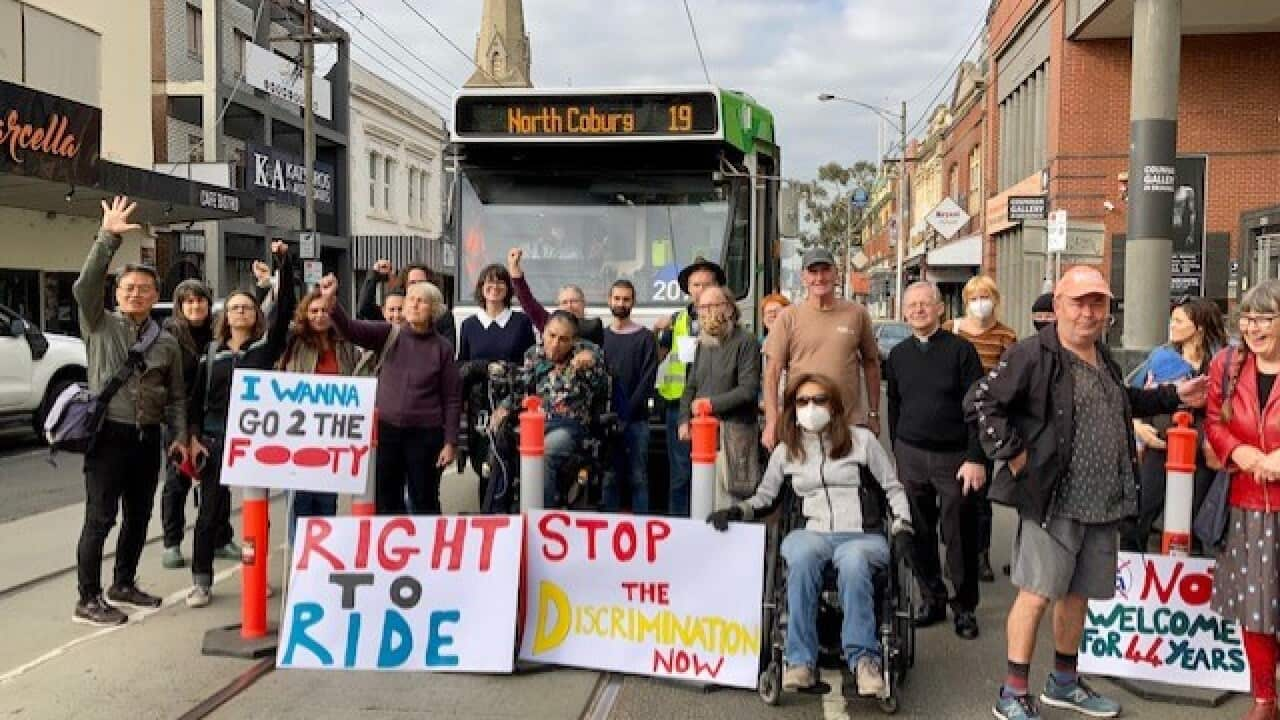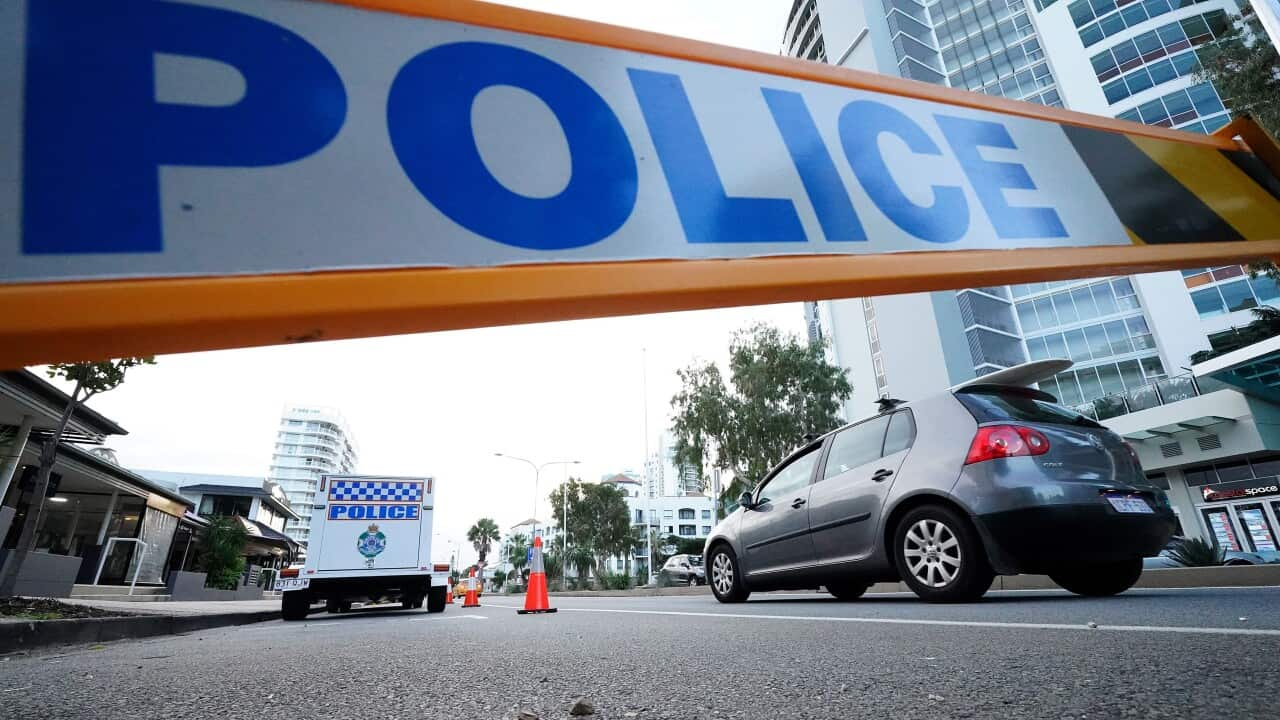Ms Salcedo has a tram stop just around the corner of her home in Melbourne that could take her directly to university or her workplace.
However, being in a wheelchair makes it impossible for her to access this common means of transport, one most Melburnians take for granted.
"People in wheelchairs have to take a taxi, which is more expensive, or they have to travel to accessible train stations," she tells SBS Spanish.
"In my case, the train station is far away from where I live."
Highlights:
- The Victorian Department of Transport launched several plans to facilitate access for people with mobility problems.
- An audit indicates that the Department of Transport has failed to meet legislated targets for accessible tram infrastructure.
- Groups of people with disabilities are calling out the government for breaching its promises.
The difficulties that Ms Salcedo faces to move on a day-to-day basis are all too common for people with mobility problems in Victoria.
"It is also a problem for parents who take their children in a stroller, and also for older people who have restricted mobility," Ms Salcedo explains.
According to official data from the Victorian government, Melbourne's tram network is a crucial mode of public transport, with 205 million journeys made each year.
However, 17 per cent of the state's population lives with some type of disability which can make it very difficult for them to access the train or tram.
Victoria's Department of Transport launched several plans to facilitate access for people with mobility issues, and announced they were committed to "reducing barriers to accessing public transport".
"We are planning for the future and investing $70 billion in new improved transportation infrastructure for all," according to the Department of Transport's website.
However, these plans have not yet materialized, despite the fact that the Disability Discrimination Act of 1992 (DDA) requires that all tram stops fully comply with the Disability Standards for Accessible Public Transport of 2002 (DSAPT) by December 31, 2022 and that all trams must comply with DSAPT by December 31, 2032.
An official audit found that "tram services are not meeting the accessibility needs of passengers with mobility restrictions."
The report further states that "the Department of Transport (DoT) has not met legislated targets for accessible tram infrastructure and cannot comply by 31 December 2022."
"Based on the trend to date, DoT is also at risk of not meeting the 31 December 2032 tram compliance requirement", the audit states.
The disability advocacy group, the Disability Resources Centre (DRC) started protests in Victoria to demand the fulfilment of the state government's promises.
"They are not only breaking their promises, they are also violating the Disability Standards for Public Transportation law and the Disability Discrimination Act," she said.
SBS Spanish contacted the Victorian Department of Transport for comment.
A Department of Transport Spokesperson told SBS Spanish they were "investing in new low-floor trams, building accessibility into the design of our Next Gen Trams and developing a plan to deliver more level tram stops to ensure Victoria’s transport network is accessible for everyone".
Nevertheless, the Department acknowledged "there is more work to be done".

However, Ms Salcedo says the government has told the Disability Resources Centre that "there are no special trams and that they would have to elevate streets to level the high tram stops with sidewalks."
She explains that among those who have joined the protest are people with disabilities who claim to have been in a wheelchair for more than 30 years and who since then "have been waiting to have the right to access inclusive public transport."
Read or listen to this story in Spanish:

El transporte público “no es para todos”, denuncia latina con discapacidad en Australia


